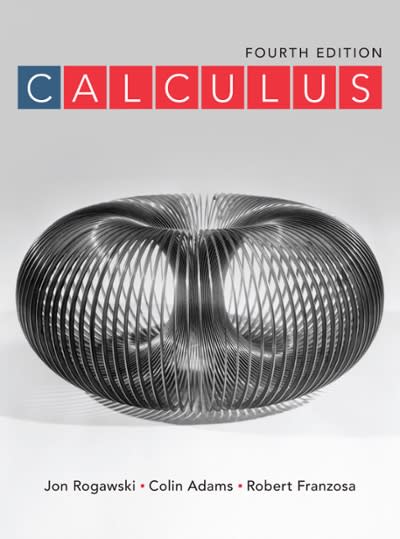Suppose that functions and g satisfy Eq. (1) and have the same initial valuesthat is, (0)
Question:
Suppose that functions ƒ and g satisfy Eq. (1) and have the same initial values—that is, ƒ(0) = g(0) and ƒ'(0) = g(0). Prove that ƒ(x) = g(x) for all x. Apply Exercise 70(a) to ƒ − g.
Eq.(1)

Data From Exercise 70
Suppose that ƒ(x) satisfies the following equation (an example of a differential equation):
![]()
(a) Show that ƒ(x)2 + ƒ'(x)2 = ƒ(0)2 + ƒ'(0)2 for all x. Show that the function on the left has zero derivative.
Fantastic news! We've Found the answer you've been seeking!
Step by Step Answer:
Related Book For 

Question Posted:





